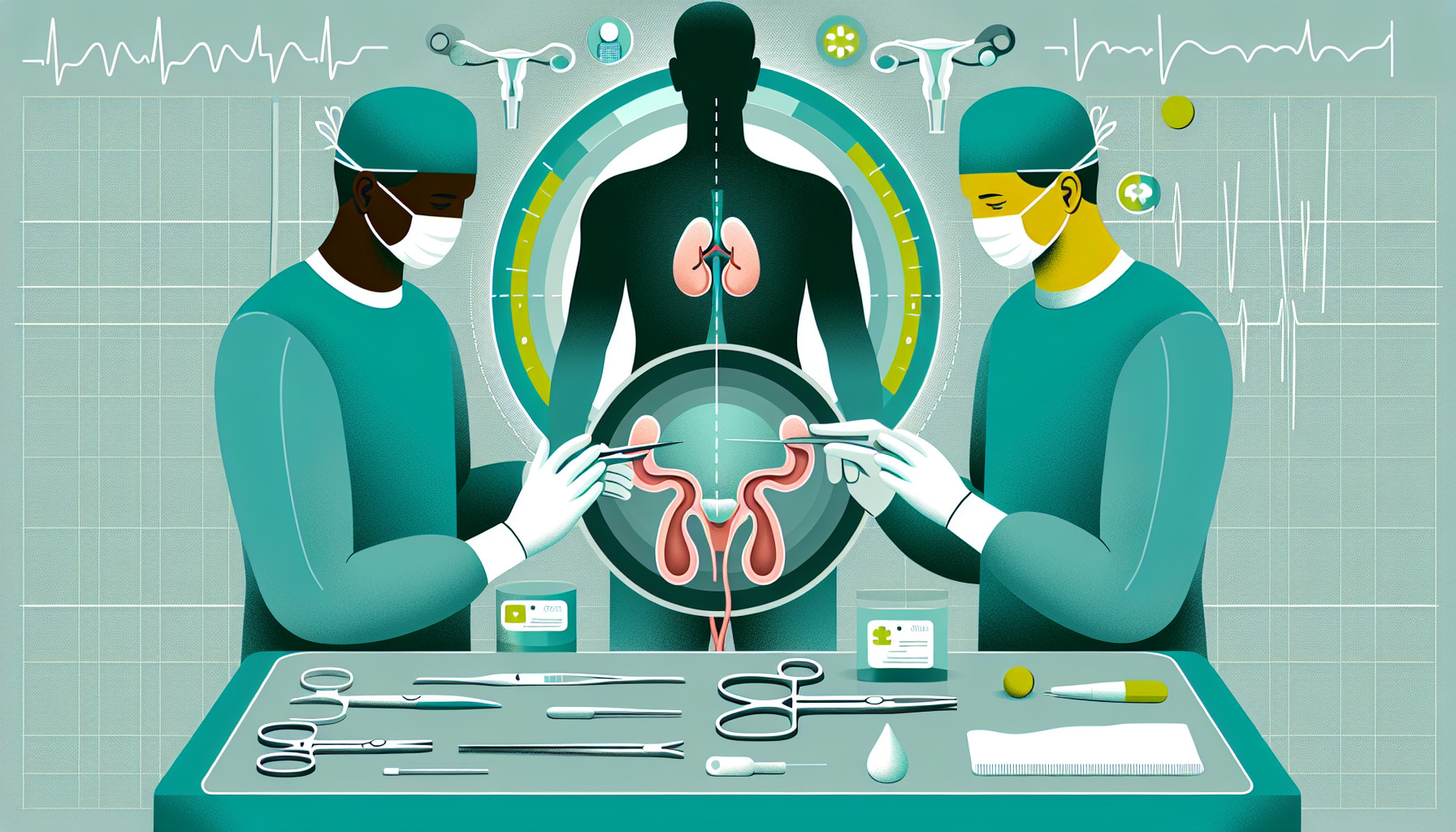Our Summary
This research paper is essentially a review of the current state of robot-assisted surgery for bladder cancer, 16 years after the first such procedure was done. The researchers looked at 400 articles published between 2003 and 2019 that were related to this type of surgery.
Most of these articles were from the United States, while a small fraction were from Asian countries like China, South Korea, Japan, Taiwan, Turkey, and Iran. The paper discusses various aspects of this surgery, including how patients are selected, pre-surgery preparations, the surgical technique itself, and what happens after the surgery.
They found that the use of robot-assisted surgery for bladder cancer is increasing and that it’s leading to fewer blood transfusions, shorter hospital stays, and less severe complications. However, they didn’t find any evidence that this type of surgery improves a patient’s chances of surviving bladder cancer.
The researchers also note that robot-assisted surgery for bladder cancer is not widespread in Asia and that more research is needed to understand its benefits in terms of reducing complications, costs, and improving survival rates. They also mention that in the future, treatments may be tailored based on a patient’s genetic profile.
FAQs
- What findings were reported in the review of robot-assisted surgery for bladder cancer?
- How does robot-assisted surgery for bladder cancer differ in the United States compared to Asian countries?
- What potential future developments are suggested for the treatment of bladder cancer?
Doctor’s Tip
One helpful tip a doctor might tell a patient about cystectomy is to follow post-operative care instructions closely to promote healing and prevent complications. This may include proper wound care, avoiding heavy lifting or strenuous activity, and attending follow-up appointments with your healthcare provider. It’s also important to communicate any concerns or changes in symptoms to your healthcare team promptly.
Suitable For
Patients who are typically recommended for cystectomy include those with muscle-invasive bladder cancer, recurrent non-muscle-invasive bladder cancer, or high-grade non-muscle-invasive bladder cancer that has not responded to other treatments such as chemotherapy or immunotherapy. Additionally, patients with large or multiple tumors in the bladder, as well as those with a history of adenocarcinoma or squamous cell carcinoma of the bladder, may also be recommended for cystectomy. Other factors that may influence the recommendation for cystectomy include the patient’s overall health, age, and ability to tolerate surgery.
Timeline
Before cystectomy:
- Initial diagnosis of bladder cancer through various tests such as cystoscopy, imaging studies, and biopsy.
- Consultation with urologist and other healthcare providers to discuss treatment options, including the possibility of cystectomy.
- Pre-surgery preparations such as blood tests, imaging studies, and possibly chemotherapy or radiation therapy.
- Consent process for surgery and discussion of potential risks and benefits.
After cystectomy:
- Recovery period in the hospital, which may involve pain management, monitoring for complications, and physical therapy.
- Transition to rehabilitation or home care for continued recovery.
- Follow-up appointments with healthcare providers to monitor for recurrence of cancer, manage any complications, and discuss potential need for further treatments such as chemotherapy or immunotherapy.
- Adjustment to life after cystectomy, including potential changes in diet, lifestyle, and emotional well-being.
What to Ask Your Doctor
- What are the potential risks and complications associated with cystectomy?
- How will I be evaluated to determine if I am a suitable candidate for robot-assisted surgery for bladder cancer?
- What are the potential benefits of robot-assisted surgery compared to traditional open surgery for bladder cancer?
- What is the typical recovery time and post-operative care following robot-assisted cystectomy?
- Are there any long-term side effects or limitations associated with robot-assisted cystectomy?
- How many robot-assisted cystectomy procedures have you performed, and what is your success rate?
- Will I need any additional treatments, such as chemotherapy or radiation therapy, after robot-assisted cystectomy?
- How will my follow-up care be managed after robot-assisted cystectomy?
- Are there any ongoing clinical trials or research studies related to robot-assisted surgery for bladder cancer that I may be eligible for?
- How does robot-assisted surgery for bladder cancer compare in terms of cost and insurance coverage compared to traditional open surgery?
Reference
Authors: Fujimura T. Journal: Int J Urol. 2019 Nov;26(11):1033-1042. doi: 10.1111/iju.14076. Epub 2019 Jul 30. PMID: 31364203
